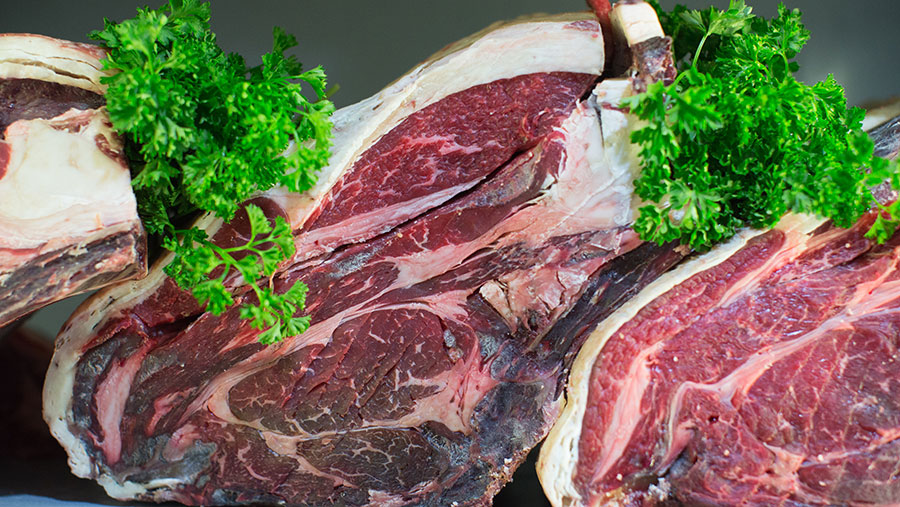Meat production slammed in leaked food strategy paper
 © Tim Scrivener
© Tim Scrivener The second instalment of Henry Dimbleby’s National Food Strategy (NFS) will encourage people to eat less meat and seek out dietary alternatives to help the UK meet climate targets, according to reports.
Part two of the NFS report is due to be published later this week and a number of measures that are expected to be included have been circulating in national media.
Mr Dimbleby’s report will call for a “protein transition” over the next decade in which the public will be actively encouraged to seek out meat-free alternatives, according to The Times. These are said to include edible algae and fermented protein alternatives such as microbes and plant biomass.
See also: Food security debate: Balancing imports v self-sufficiency
Defra has commissioned Mr Dimbleby to conduct an independent review to help the government create its first National Food Strategy for 75 years. The review is examining the whole food system from farm to fork.
It is also understood that his latest report will recommend that the least productive 20% of UK agricultural land should be handed over to tree planting and other biodiversity measures to increase the UK’s carbon sink.
Cheap food imports
Farm lobby Save British Farming (SBF) said it was ironic that the report would recommend that the government urges consumers to eat less meat when it is preparing to offer Australia a post-Brexit free-trade deal on agri-food products, which would open the floodgates to red meat imports produced to lower standards than in the UK.
SBF founder and farmer’s wife Liz Webster: “He [Henry Dimbleby] is using the same double speak of greenwashing and also trying to put forward a health argument, which are both false narratives.
“Rewilding 20% of farmland will decimate domestic food production, while allowing food to be flown in from the other side of the world, which is worse for our carbon footprint. For farmers, it means less farms.”
The NFS report will also recommend changes in intensive farming production methods to encourage healthy eating and more environmentally friendly diets. Mr Dimbleby is expected to conclude that exercise and education are not enough to deal with increasing levels of obesity.
He wants to encourage “social prescribing of fruit and veg” to families on low incomes to “break the junk food cycle”. Schemes could be partly funded through the proceeds of levies from unhealthy foods.
Prime minister Boris Johnson and his government have dismissed reports that the NFS will contain recommendations for the introduction of a meat tax, amid concerns from some Tory MPs that such a move may spark French yellow vest-style protests.
Salt tax proposal
However, a proposal of a 6% tax on salty foods is tipped to be a central recommendation of the report. It could add 20p to the cost of a McDonald’s Big Mac burger and 5p to a packet of crisps.
In December, the government’s Committee on Climate Change recommended a 20% cut in meat and dairy by 2030, rising to 35% by 2050 for meat only.
But the government has said it will look to meet the 78% reduction target through green technologies, while maintaining people’s freedom of choice – including their diet.
The government has promised to assess the NFS report and respond with its own White Paper food strategy within six months.
